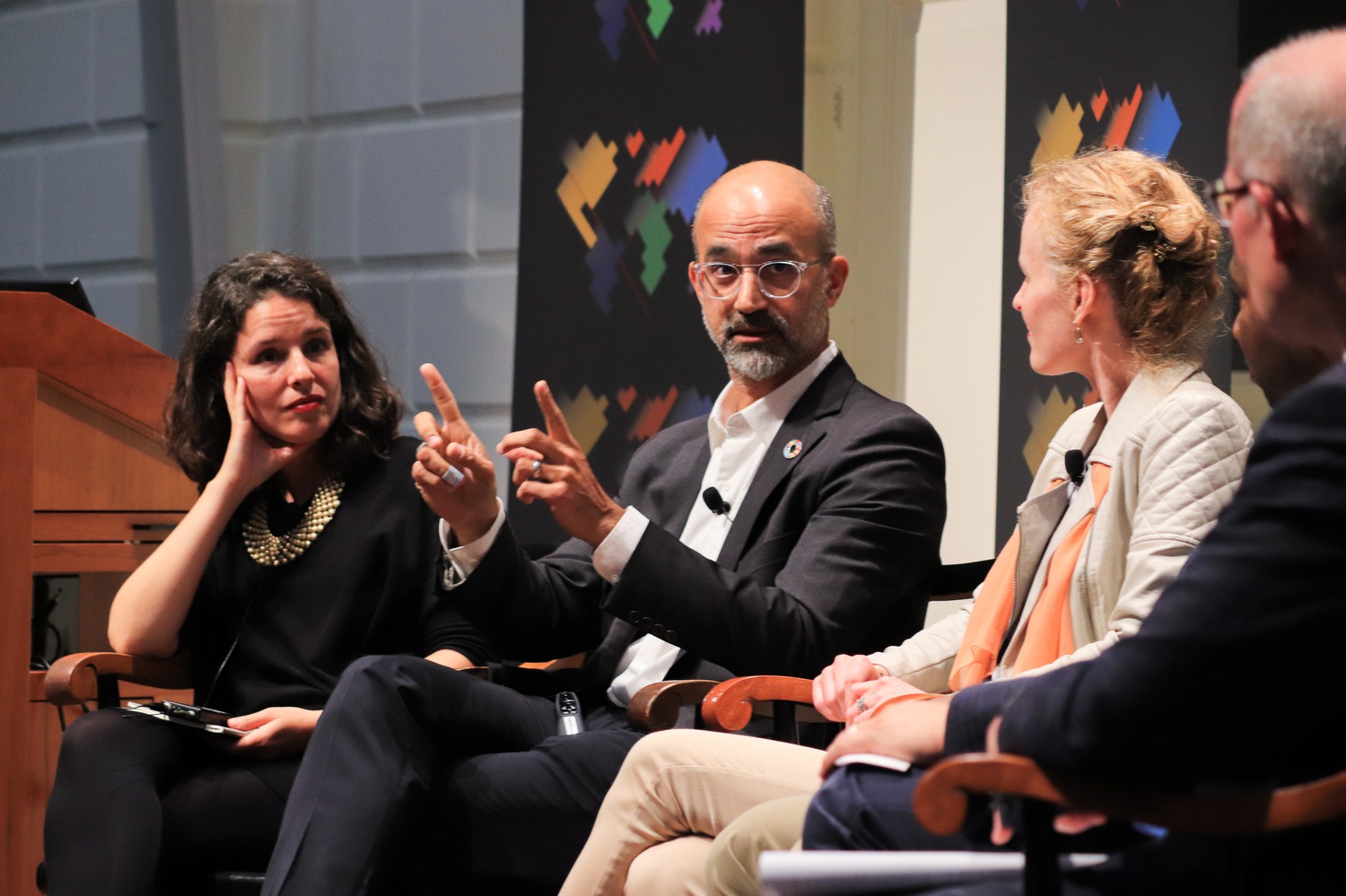
News
News Flash: Memory Shop and Anime Zakka to Open in Harvard Square

News
Harvard Researchers Develop AI-Driven Framework To Study Social Interactions, A Step Forward for Autism Research

News
Harvard Innovation Labs Announces 25 President’s Innovation Challenge Finalists

News
Graduate Student Council To Vote on Meeting Attendance Policy

News
Pop Hits and Politics: At Yardfest, Students Dance to Bedingfield and a Student Band Condemns Trump
Harvard Business School Faculty and Climate Experts Talk Water and the Future of the City in Panel Discussion

Climate experts and Harvard Business School lecturers discussed the consequences of climate change on urban development and the world in a panel discussion sponsored by the HBS Global Initiative on Tuesday afternoon.
The event was part of Harvard’s third annual Worldwide Week, an event held to highlight international research conducted by Harvard faculty and to promote discussion of global issues.
In recent years, climate change has been a hot button issue for domestic and international policymakers. In September, Harvard affiliates and students went on strike to protest perceived climate denial and inaction on the part of governments around the world.
Graduate School of Design Dean Sarah M. Whiting introduced the panel, saying that water, “pardon the pun, saturates the curriculum” at GSD.
Whiting added that one of the goals of the panel was to “stimulate research on our campus and beyond.”
John D. Macomber, senior lecturer at the Business School, began the conversation by highlighting the “dissimilar” and often “contrasting” repercussions of climate change on international communities.
Macomber added that different regions may face different environmental consequences — extreme heat versus extreme cold, for example — and as such require different approaches to solving the problem of climate change.
Macomber urged the audience to remember that the consequences of climate change may be “small inconveniences for some of us… but for others this is an existential threat.”
In a wide-ranging conversation that lasted over an hour and a half, panelists discussed the repercussions of flooding in urban areas, public health, and the impact of climate change in the developing world, among other subjects.
Other panelists included Joyce E. Coffee, president of Chicago-based consulting firm Climate Resilience Consulting; John E. Fernández, professor of architecture at MIT; James Matheson, senior lecturer at the Business School; Efosa Ojomo, senior research fellow at the think tank Christensen Institute for Disruptive Innovation; and Loreta Castro Reguera, professor of architecture at Universidad Nacional Autonoma de Mexico.
Anna Demina, a Masters student in urban planning and policy at Northeastern University, said that she felt that the event effectively touched on issues affecting countries with developing infrastructure as well as urban cities and developed nations.
“A lot of people who are talking about climate resilience, about water resilience, they are thinking more about how we can protect cities and developed countries, and I don’t see much discussion about developing countries,” said Demina.
— Staff writer Ellen M. Burstein can be reached at ellen.burstein@thecrimson.com. Follow her on Twitter @ellenburstein.
Want to keep up with breaking news? Subscribe to our email newsletter.
Most Read
- Harvard Outsourced Its Slavery Research. Then a Former Employee Began Notifying Descendants — Without Its Knowledge.
- Harvard Built the Biotech Industry in Cambridge, Then Let It Go. Now It Wants Back In.
- Harvard Will Create Process To Centralize Protest Discipline Cases Under University President
- Affinity Groups Face Silence From Harvard as Trump Targets Race-Based Graduation Celebrations
- 6 Harvard Students, Recent Grads Have Visa Status Restored
From Our Advertisers

Over 300+ courses at prestigious colleges and universities in the US and UK are at your disposal.

Where you should have gotten your protein since 1998.

Serve as a proctor for Harvard Summer School (HSS) students, either in the Secondary School Program (SSP), General Program (GP), or Pre-College Program.

With an increasingly competitive Law School admissions process, it's important to understand what makes an applicant stand out.

Welcome to your one-stop gifting destination for men and women—it's like your neighborhood holiday shop, but way cooler.

HUSL seeks to create and empower a community of students who are seeking pathways into the Sports Business Industry.
